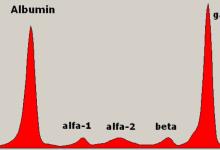ACIP Guidelines on H. Zoster Vaccination Updated Save
The ACIP has discussed and analyzed its VZV vaccination policy to ensure safety and reduce disease burden. This report serves as a supplement to the 2008 Prevention of Herpes Zoster Recommendations.
Herpes zoster is a localized, usually painful, cutaneous eruption resulting from reactivation of latent varicella zoster virus (VZV). Herpes zoster is common: approximately one million cases occur each year in the United States.
The incidence increases with age, from five cases per 1,000 population in adults aged 50–59 years to 11 cases per 1,000 population in persons aged ≥80 years.
In October 2017, the Food and Drug Administration (FDA) approved the Recombinant, Adjuvanted Zoster Vaccine (Shingrix) from GlaxoSmithKline, for the prevention of herpes zoster in adults aged ≥50 years. The inactive vaccine consists of 2 doses (0.5 mL each), administered intramuscularly, 2–6 months apart.
Soon after, the Advisory Committee on Immunization Practices (ACIP) recommended the new recombinant zoster vaccine (RZV) for use in immunocompetent adults aged ≥50 years. This was based on a an 8-7 vote favoring the use of Shingrix over Zostavax.
Zoster Vaccine Live (ZVL) (Zostavax) is a 1-dose live attenuated strain of VZV, is licensed for the prevention of herpes zoster in immunocompetent adults aged ≥50 years and is recommended by the ACIP for use in immunocompetent adults aged ≥60 years.
Since licensure of ZVL, vaccine coverage has increased each year, and by 2016, 33% of adults aged ≥60 years reported receipt of the vaccine.
A cost effectiveness analysis comparing the RZV with ZVL or no vaccine. It appears that vaccination with RZV prevented more disease at lower overall costs than did vaccination with ZVL.
Vaccination with RZV, compared with no vaccination, cost $31,000 per quality adjusted life year (QALY), on average, for immunocompetent adults aged ≥50 years. The numbers of persons needed to be vaccinated with RZV to prevent one case of herpes zoster and one case of postherpetic neuralgia are 11–17 and 70–187, respectively. Estimates of costs per QALY for vaccination with RZV 8 weeks following ZVL (estimated by immediate revaccination in the model) ranged from $15,000 per QALY in persons aged 80–89 years to $117,000 per QALY for persons aged 50–59 years.
At the October 2017 ACIP meeting, three proposed recommendations were presented to the committee:
- RZV is recommended for immunocompetent adults aged ≥50 years (14 voted in favor, 1 opposed*),
- RZV is recommended for immunocompetent adults previously vaccinated with ZVL (12 voted in favor, 3 opposed),
- RZV is preferred over ZVL (8 voted in favor, 7 opposed). This report summarizes the data considered, the quality of evidence, and rationale for recommendations.
There are no head to head studies of RZV and ZVL.
Rationale for RZV over ZVL. In separate clinical trials, for all age categories, RZV estimates of efficacy against herpes zoster were higher than those for ZVL. Estimates of efficacy against postherpetic neuralgia are also higher for RZV than for ZVL; however, CIs overlap. ZVL efficacy wanes substantially during the 4 years following receipt. As a result of higher and more long-lasting efficacy, RZV is estimated to prevent more herpes zoster and postherpetic neuralgia compared with ZVL. ACIP acknowledged that several aspects of RZV performance will be further elucidated postlicensure, including the possibility of a rare adverse event related to the vaccine, the long-term duration of protection, the adherence to the 2-dose schedule, and the effectiveness and duration of protection of 1 dose of RZV. Some ACIP members preferred to recommend both vaccines with no preference until real-world data could be accrued, including head-to-head studies. The majority of ACIP members voted to recommend RZV preferentially (Box).
Special Populations
Persons with a history of herpes zoster. Herpes zoster can recur. Adults with a history of herpes zoster should receive RZV. If a patient is experiencing an episode of herpes zoster, vaccination should be delayed until the acute stage of the illness is over and symptoms abate. Studies of safety and immunogenicity of RZV in this population are ongoing.
Persons with chronic medical conditions. Adults with chronic medical conditions (e.g., chronic renal failure, diabetes mellitus, rheumatoid arthritis, and chronic pulmonary disease) should receive RZV.
Immunocompromised persons. As with ZVL, the ACIP recommends the use of RZV in persons taking low-dose immunosuppressive therapy (e.g., <20 mg/day of prednisone or equivalent or using inhaled or topical steroids) and persons anticipating immunosuppression or who have recovered from an immunocompromising illness (6). Whereas RZV is licensed for all persons aged ≥50 years, immunocompromised persons and those on moderate to high doses of immunosuppressive therapy were excluded from the efficacy studies (ZOE-50 and ZOE-70), and thus, ACIP has not made recommendations regarding the use of RZV in these patients; this topic is anticipated to be discussed at upcoming ACIP meetings as additional data become available.
Persons known to be VZV negative. Screening for a history of varicella (either verbally or via laboratory serology) before vaccination for herpes zoster is not recommended. However, in persons known to be VZV negative via serologic testing, ACIP guidelines for varicella vaccination should be followed. RZV has not been evaluated in persons who are VZV seronegative and the vaccine is not indicated for the prevention of chickenpox (varicella).
Pregnancy and breastfeeding. There are no available data to establish whether RZV is safe in pregnant or lactating women and there is currently no ACIP recommendation for RZV use in this population. Consider delaying vaccination with RZV in such circumstances.










If you are a health practitioner, you may Login/Register to comment.
Due to the nature of these comment forums, only health practitioners are allowed to comment at this time.